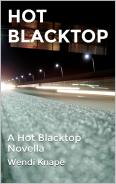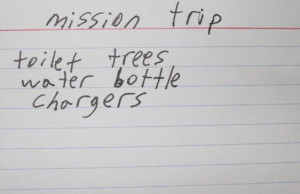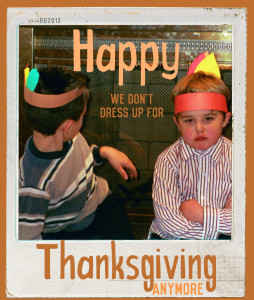A waitress at a nice restaurant my wife and I like to frequent said, “No Problem,” after I thanked her for topping off our water glasses. I asked her, “what would be a problem?” She just stared at me.
I asked her, “If freshening my water isn’t a problem, would sending back my meal be a problem?”
We hadn’t been served yet, so that only confused her more. My wife interrupted and told her I was just being funny. Perhaps I was, but this waitress gave less forethought to her words then a parrot does. I know she was just using a common and well excepted version of you’re welcome, her heart was in the right place, but in this scenario, that remark does not mean the same thing as “you-are-welcome.” Left on its own, the implication is no problem this time, and even left unspoken it still rings in my ear the same way fucked rings in my ear every time I hear a newscaster or politician use the acronym SNAFU.
As a fiction writer, I work with innuendos and inferences all the time, they are the salt and pepper of suspense. But the older I get the less tolerance I have for them in real life. When that answer cropped up again a few weeks later, my wife and I agreed to just keep score. Now, rather than reprimand or ridicule, I just reduced my tip by one-percent every time they say it. We’ve saved some money, but more than that it’s taught me which waiters and waitresses not to ask for when we return. I want to be their patron, you see, not their problem.
That isn’t my only vernacular pet peeve. Another is when a stranger asks, How Are You, by way of introduction. This is the most common salutation of all, almost silent in fact, but it sounds like an invasion of privacy coming from a telemarketer or car salesman. I started having fun with these people years ago, by answering, “Sitting up and taking solids now. Thanks for asking… How are you?” Fully half just answer, “Fine,” and go right into their spiel. They don’t hear my initial comment any more than they hear their own first words. Makes me wonder what else they’re not going to hear. Another smartass answer I like is, “Unless you are my doctor or my life insurance agent, that’s none of your business!” That one they usually hear, but they still just go right into their pitch.
Another un-favorite is, Unbelievable, and it’s raising to the top of the list fast. With current events being where they are, what with real and phake news getting equal time it seems, this comment is cropping up with alarming regularity. The next time someone tells you something is unbelievable, take them for their word – don’t believe them! Instead, interrupt with, “Wait! Why do you want to tell me something you yourself don’t believe? That’s just a waste of my time, and it doubles the time you’ll waste on it.”
There are others that itch. Here are my un-favorite, irritable, ambiguous comments, and how they ring in my ear.
“No problem.” (server) Be careful what you ask for.
“How are you?” (stranger) What are you selling?
“Unbelievable.” (casual acquaintance) Are you a fool?
“Let me think about it.” (spouse or S.O.) No. And don’t ask again.
“You never know,” or, “It’s hard to say.” (boss) Oh, you know alright, you’re just not telling me.
Any double-negative, like; “I don’t know that it’s not true.” (politician) It’s a lie, and they know it.
Finally, the most eye-rolling statement of all, “Congratulations!” (stranger) You want my money.
What are yours, and how do they ring in your ear?


